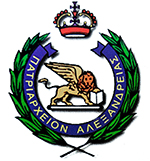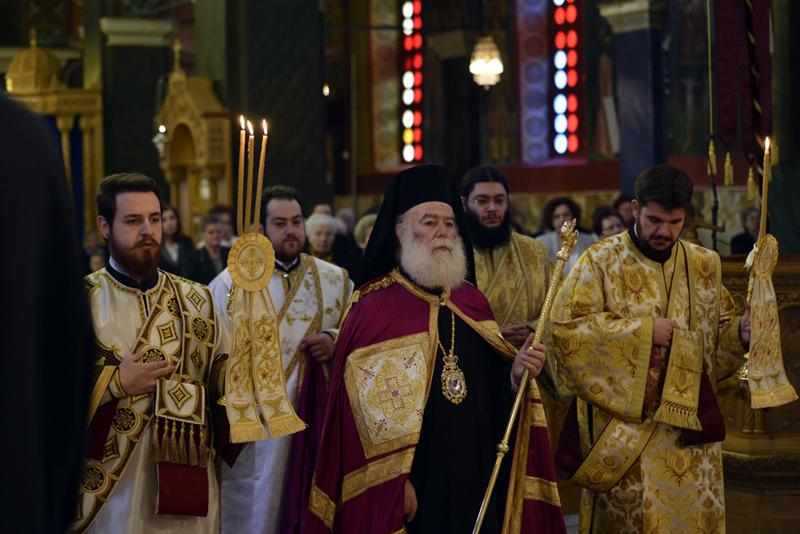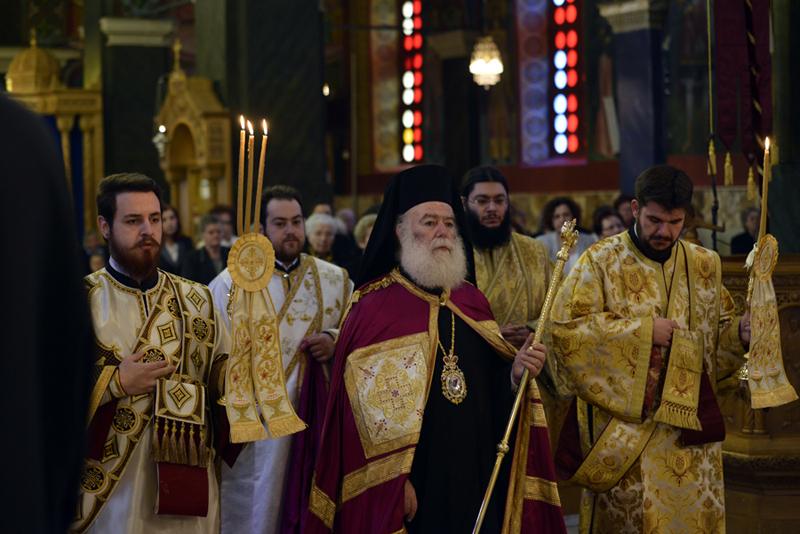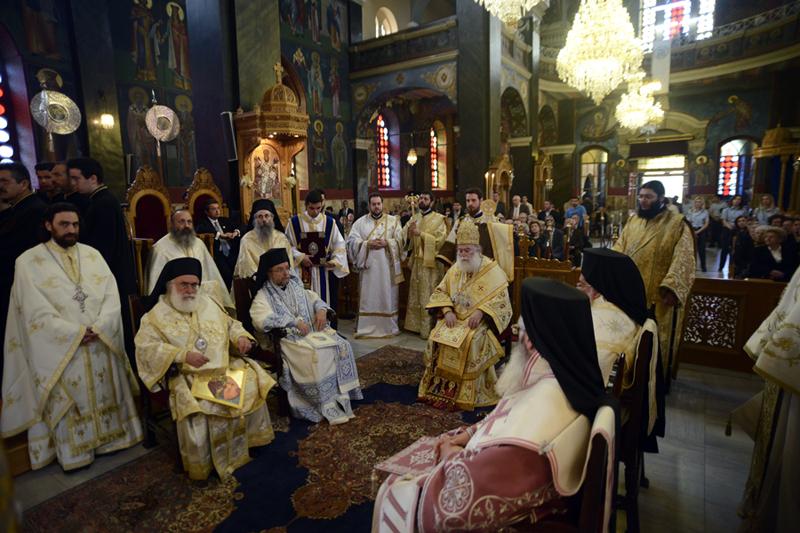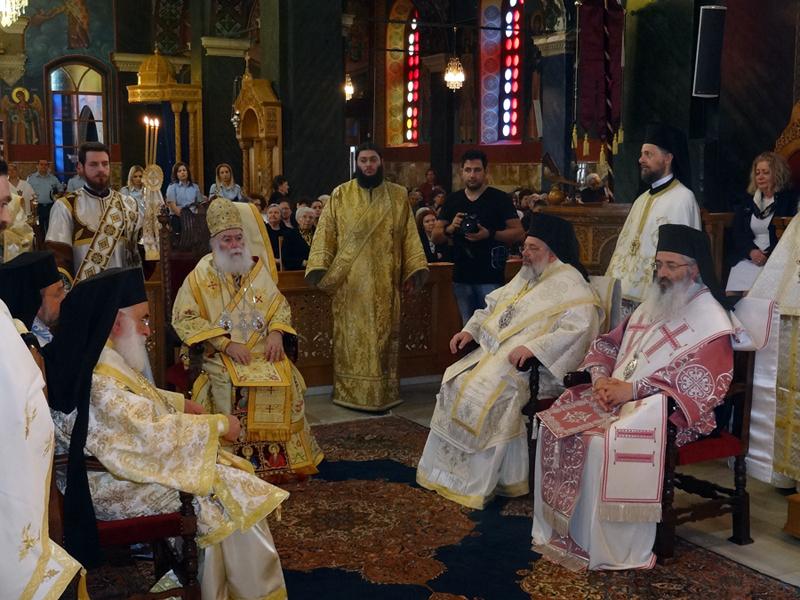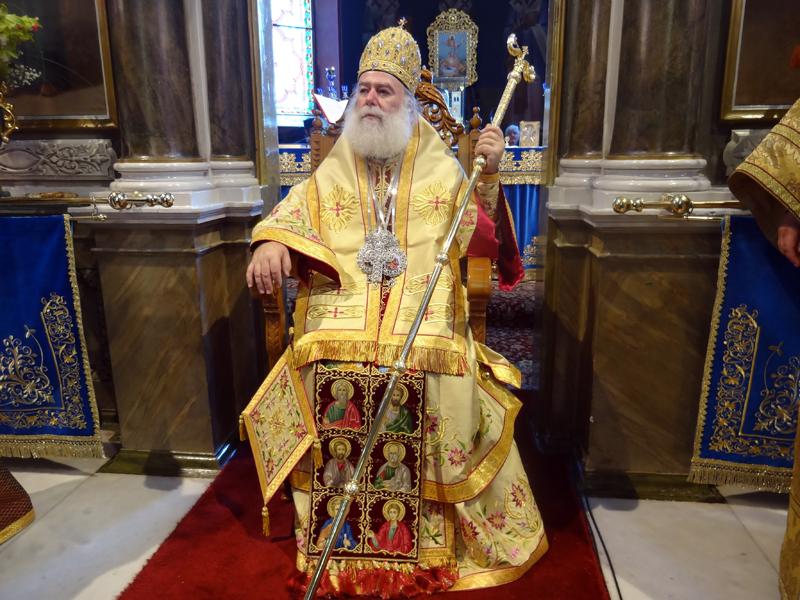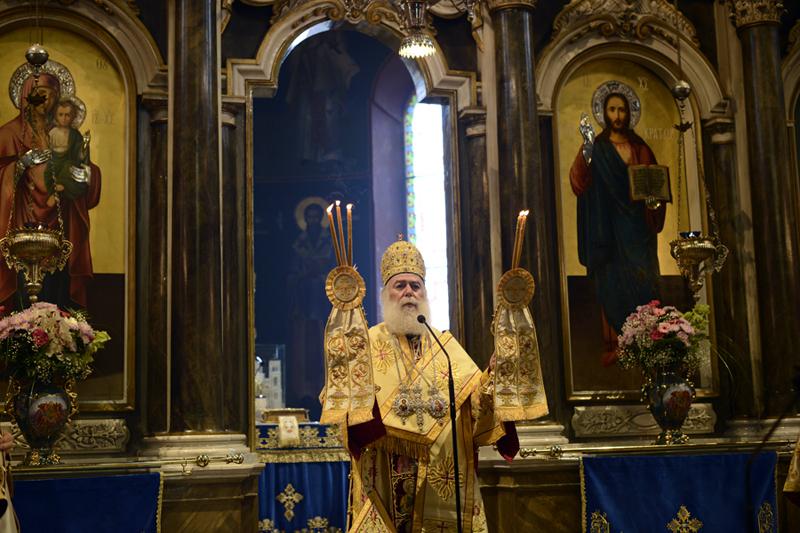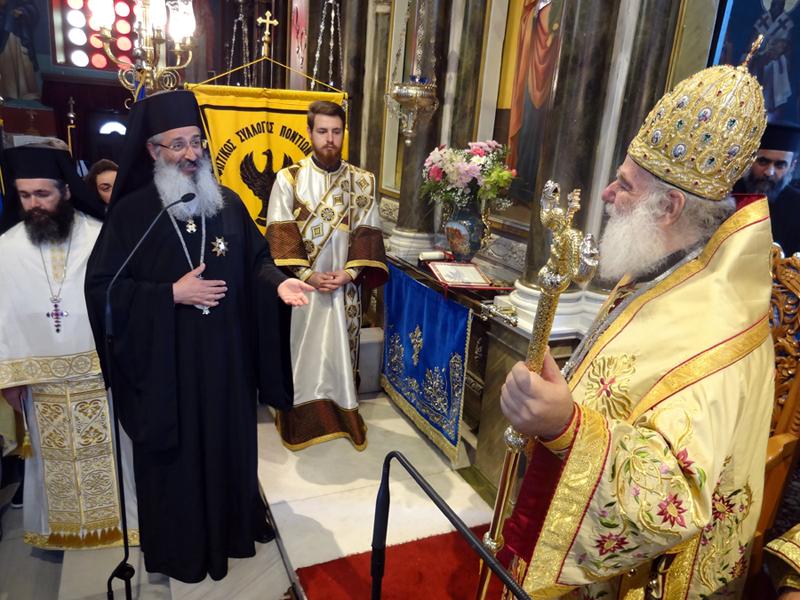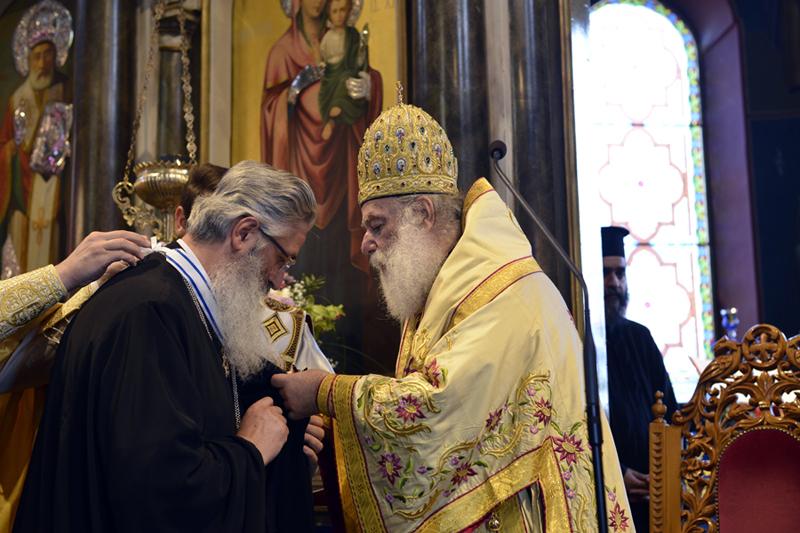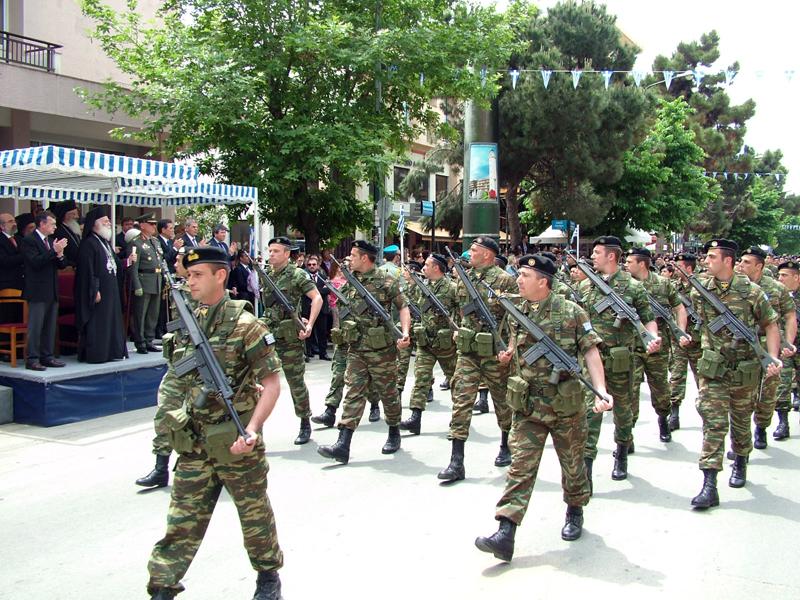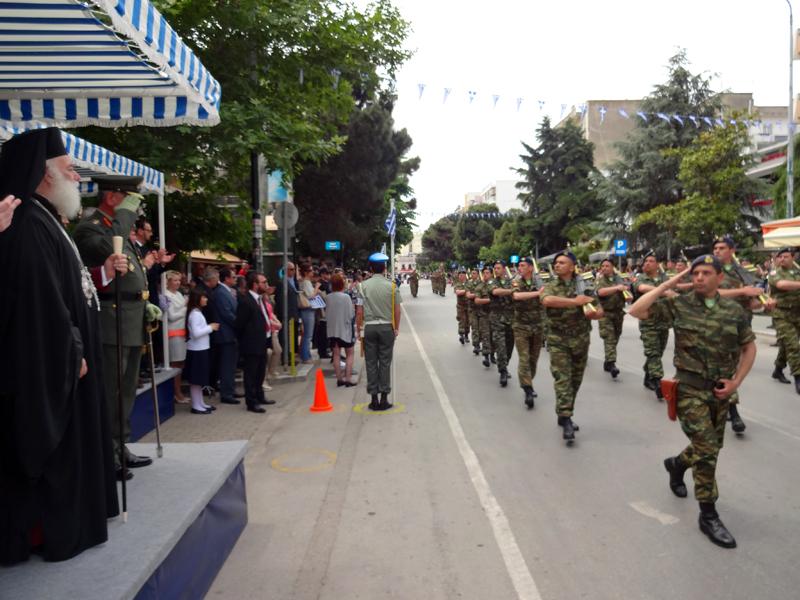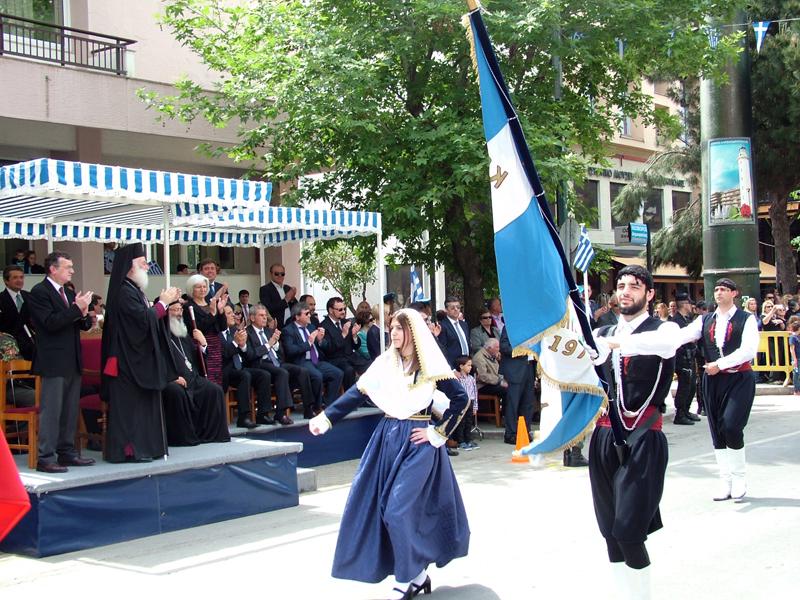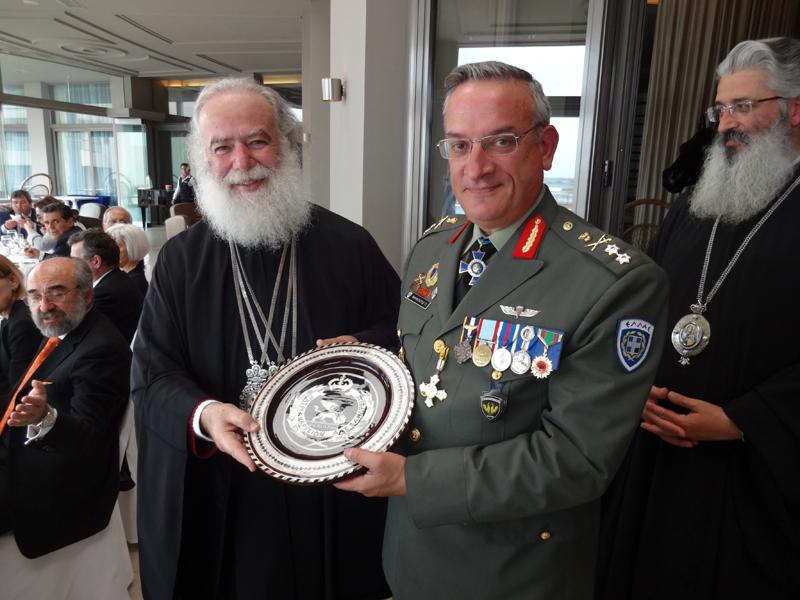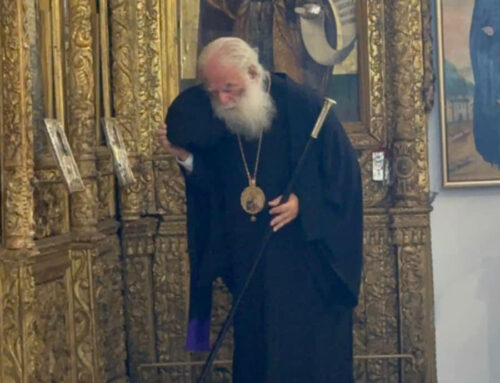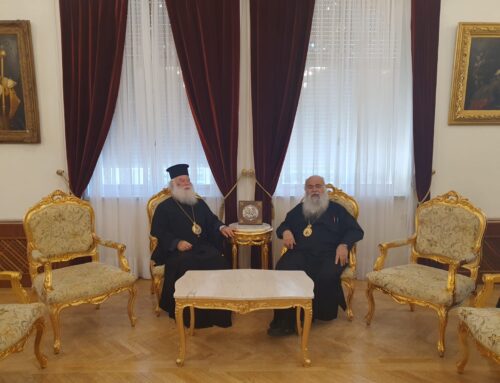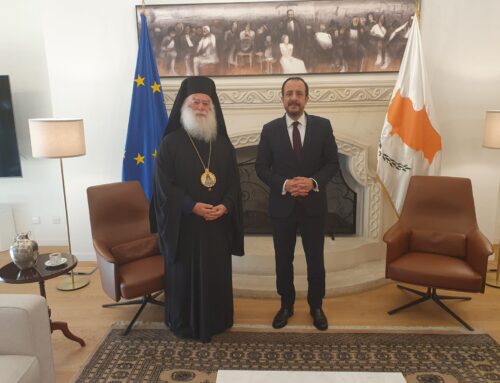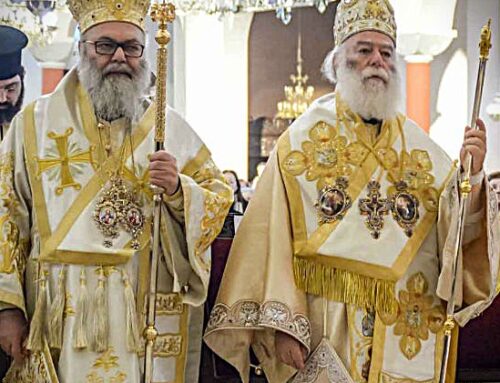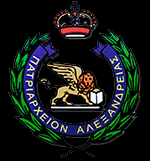On 14th May 2014, His Beatitude Theodoros II, Pope and Patriarch of Alexandria and All Africa, officiated at Matins and conducted the Divine Liturgy at the Holy Metropolitan Church of St Nicholas on the occasion of the festal celebration of the 94th anniversary of the Liberation of Alexandroupolis, together with Their EminencesMetroplitan Alexios of Carthage,Metropolitan Damaskinos of Didymotheihos, Metropolitan Panteleimon of Xanthe and Metropolitan Anthimosof Alexandroupolis and in the presence of His Excellency the Deputy Minister of Foreign Affairs Mr. K. Gerontopoulos, the Officers of the 12th Infantry Division, Officials of the City and the County of Evros. Responding to the address by the Deputy Minister, His Beatitude stressed, among other things:
“Freedom is more necessary even than one’s own existence. Because it makes life sweet, it gives rise to authorities of our Country, lawmakers, virtuous people, wise people, technicians, and anyway it is freedom that brings honour to humanity”.
With these words the Anonymous one of the Greek Prefecture, expressed with clarity on the eve of the Greek Revolution why all nations on earth had historically honoured freedom more than any other virtue. When one is free, he develops spiritually, morally and emotionally. He forms and completes his personality and becomes a responsible citizen. He feels that he is master of his life and fate and creates, having as his eventual aim its perfection.
When human societies are free, they strengthen equality, equality of rights and parity. They foster co-operation, mutual assistance, mutual understanding and competition amongst citizens, with the ultimate aim of shared progress. They become unshackled from inequalities, prejudices and stereotypes and open up roads to democracy, not as lawlessness and anarchy, but as responsibility to others, as well as the law.
The prototype of human freedom is the freedom which God endowed to mankind, when out of extreme goodness he called us into being and made us in His image. God sowed freedom on the fertile ground of the rational soul and appointed man as steward of His creation. Many when mankind misused his free will, God not only not abhor mankind, but renewed the image in man. He sent His Only-Begotten Son, who, through His life and death, personified freedom as respect for others and love as the ultimate sacrifice.
Of course, as the Nikos Kazantzakis, the thinker of Crete wrote: “freedom does not fall at your feet; it is a fortress and you get it through hard work”. Freedom is not put on a plate, it is not donated, but is won by struggles and sacrifices on a personal and collective level. Particularly for the Greek nation, the meaning of freedom is linked to countless struggles and sacrifices for the preservation of national independence, against external and internal enemies.
One such aspect of modern Greek history is what we are revering today here in Alexandroupolis. On a day like today, in 1920, this city of Evros was celebrating its liberation and its incorporation into the national body. The soldiers’ crossroads, the arena of the brave, the apple of discord for all who sought a way out to the White Sea, this tormented place was now raising the Greek flag. It meant the time for the return of refugees and hostages, the time of the reoperation of churches and schools, the restoration of the Greek profile of the city. The people were claiming back their inviolate right to create their history freely, to choose the character of their culture, to taste freedom and its benefits.
However, “freedom needs virtue and daring”. Liberation was not the ripe result of the Treat of Neuilly. It stood as an expression of the unconquerable conviction of the place and its people to maintain their Hellenism. It was the crowning honour of many years of struggles against the oppression and brutality of the conquerors, their only strength being their Greek conscience, the vitality and pride of the people. A fresh breeze of freedom wafted through the city. The dream of the Greek citizens of Alexandroupolis was becoming a reality and was opening a new page in its history.
We are happy to be in Alexandroupolis today to celebrate the Liberation of the city. We are happy that today we commemorate the fact that freedom is not a obvious right, but a fortress which is conquered. We are happy because we realize that while freedom is a great blessing, it was never an easy matter and it will never be so.
This is what you all comprehend daily living in the ramparts of the border of Evros, and bearing in your genetic identity deeply engraved the responsibility of safeguarding the borders, in the untoward event of their being violated. This is what we understand also in vindicating our African brothers and sisters, who in the 20th century may have tasted the national freedom of self-determination. However, at the beginning of the 21st century they continue to be prisoners of poverty, hunger, illiteracy, inequalities, transmitted diseases.
Against these terms of life the Missions of the Alexandrian Church calls on the people of Africa to participate in the joyous message of the Gospel and the word, the work, the prayer, the worship, the daily witness of Christian life, the ministry to immediate necessities of life in feeding, water supply, health and education. It renews souls in the springs of Orthodoxy and strengthens our African brothers and sisters in their relationship with God and amongst themselves. Continuing the early Christian dynamic of recruiting and transforming, a reconciled humanity is actuated and a renewed creation with a purpose. It promotes the essence of wisdom of that great icon of freedom, Nelson Mandela: “For someone to be free it is not enough that he shake off his chains, but he must live in a manner in which he respects and strengthens the freedom of others”.
Effective freedom cannot exist if it is not accompanied by love, because both servile love and loveless freedom are impaired. An unsurpassed standard for us all is love, as embodied by our Lord Jesus Christ: a love which holds and forgives everyone and everything and reaches even the sacrifice on the Cross; the love which recruits and transforms others, to the standards of the recruitment and transformation of mankind by Jesus Christ.
Blessing the noble and faithful people of Alexandroupolis, we pray that the Lord Jesus Christ, our Saviour and Redeemer, looks over this vineyard, the Metropolis of Alexandroupolis, strengthen its pious flock through the experience of love as an absolute requirement and a safeguarding of a life worthy of the image of God which we all inalienably bear within us. Amen!
Concluding his homily, His Beatitude awarded His Eminence Anthimos, Metropolitan of Alexandroupolis, with the medal of the Grand Commander of St Savvas, recognizing and honouring his contribution to the Missions, who then said “tomorrow the Patriarch will leave our city, but he will always remain in all our hearts as the most sweet Theodoros, the man of love”. A Doxology was then sung for the Liberation of the city, followed by the laying of wreaths at the city’s War Memorial and an official parade of students and soldiers.


